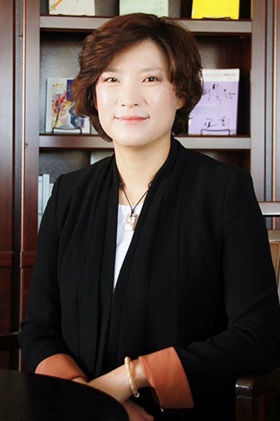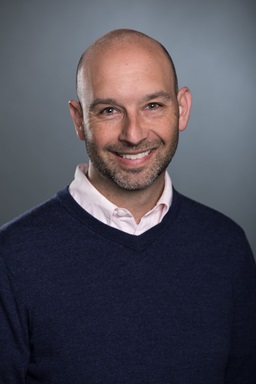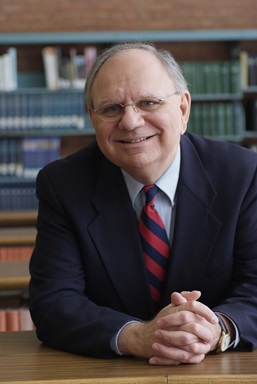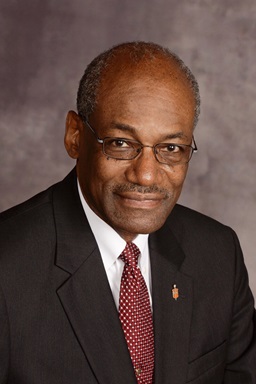
Photo courtesy of Hope UMC, San Diego.
I was called to ordained ministry while I was still in high school and attending a local Methodist Church in Korea. When I shared the news of my calling with my family, they were appalled to hear that God would call a young girl to ordained ministry. Despite my family's strong reservations, I went to college and majored in theological studies. When I was about to graduate, I finally came to realize that there was a strong bias and discrimination against women's ordination and ministry in Korea, making it difficult to fulfill my calling in Korea. So I embarked on my journey to the United States, in pursuit of a Master of Divinity degree.
Commentaries
Studying abroad was not as easy as I had anticipated. I was unprepared for the culture shock and theological challenges I encountered. The church in Korea was a place where like-minded people with similar economic and educational backgrounds gathered to form a faith community. However, the church I experienced in the United States obliged me to be attentive to a confusing mix of races, languages, cultures and ways of thinking.
During my studies at Boston University School of Theology, one professor posed a challenging question whether people from differing socio-economic backgrounds with diverse political stances would be able to form a faith community. Since then, I have pondered the meaning of the Church.
As a faithful Methodist, I have reflected upon this question, keeping in mind the Wesleyan quadrilateral: Scripture, tradition, reason and experience. The very first scriptural text that came to my mind was Galatians 3:28, "There is no longer Jew or Greek, there is no longer slave or free, there is no longer male and female; for all of you are one in Christ Jesus." Whether you are a Pharisee, the leader of the synagogue, a Samaritan, healthy or ill, when we all come together to build one faith community, we can truthfully be called the one Body of Christ.
Although the Scripture compelled me to be in communion with people of diverse backgrounds, my Korean church tradition left me conflicted. In the Korean Methodist Church, my tradition taught us that in order to uphold unity of the church, we must have a unitary theological doctrine. People who shared a similar perspective and socio-economic class came together to form a church and maintain a tradition.
While I was taking a course on the history of The United Methodist Church, I learned of a similar tradition.
When the Puritans came to America, they brought African slaves along with them. At that time, African slaves were not recognized as fully human and, although the Anglo Americans shared their gospel with the slaves, they were not willing to share restrooms, tables, schools or churches with them.
Around that time, a question was asked about whether or not it would be theologically legitimate for Bishop James Andrew to own slaves, leading to a conflict about the legitimacy of slave-owning. In 1844, the Methodist Episcopal Church was divided into the Methodist Episcopal Church and the Methodist Episcopal Church, South.
It was a bitter experience in the history of the Methodist Church, which remained divided on the issue of slavery for 95 years, until the merger of Methodist branches in 1939. The church was not making disciples of Jesus Christ for the transformation of the world, but was barely catching up with social changes of the transformed world.
Today, we encounter many laws in Scripture that we no longer can practice. According to the Hebrew Bible, if your brother dies without an heir, his brother needs to take the wife of his deceased brother to perform the duty of a husband's brother to her (Deuteronomy 25:5-12). We are not allowed to consume fish without fins and scales (Leviticus 11:10-12). We cannot wear blended yarn fabric (Leviticus 19:19, Deuteronomy 22:11). We should not eat pork (Leviticus 11:7). If we want to keep the Sabbath holy (Exodus 20:8), we cannot drive a long distance on Sunday to attend worship.
Since Jesus told us that we cannot separate "what God has joined together" (Matthew 19:6), we are not supposed to divorce either. Women should be quiet in the church (1 Corinthians 14:34), according to Apostle Paul.
Although these regulations in both Old and New Testaments, are straightforward and explicit, we who live in the 21st century no longer adhere to these Scriptural traditions.
The women who “needed to be silent” in the time of the Apostle Paul are now stepping into pastoral leadership roles. In July 2017, I was appointed to a new church plant for Korean immigrants.
At first, I was not very welcomed in this Korean faith community. However, as we learned put aside our old traditions, to open our culture and ways of thinking and become open to God's new way of leading us with God's providence, we began to experience God's grace everywhere through everyone.
When I was invited to join the Alternative Plan Task Force for the Korean Association of the United Methodist Church, I asked my Staff-Parish Relationship Committee Chair to see whether he approved my spending some of my ministerial hours on this. His response was a resounding "Yes!" Along with his response, he shared his deep concern about the the United Methodist Church becoming divided over the issue of human sexuality.
I am serving my second year at Hope Korean Community within Hope United Methodist Church, and I dare to confess that I do not fully understand God's calling and God's providence in and for the world.
In a few weeks, clergy and lay delegates will gather together to pray and to decide for the future of The United Methodist Church.
Christians who live in the 21st century need to prepare for the future, keeping in mind the future generations who will benefit from our prayerful approach to the future, based on Scripture, tradition, reason and experience.
I have now lived in the United States longer than I had lived in Korea. During this whole time, as I was taught by Korean Christian tradition, my goal was “to become a better person and Christian than most other people.” I once thought it was important to highlight the things I am very proud of and to hide the things I am not very proud of. Several years ago I decided to let go of my mask and to let God fully in my life.
With that redemption and liberation in mind, I began to work on a new church plant. I dared to set a motto for this new church plant: "From saving face to saving grace." The English expression of "saving face" can be translated into "trying to conceal my flaws and weaknesses." Koreans paddle hard under the water to keep our heads and our self-image above the water.
Simply put, we tend to focus on what we do on the surface level, on our accomplishments and actions. Now, we need to transition from our current focus on what we do and what we accomplish to a new focus on our ontological aim — our reason for existence. That compels us to transform our life from our focus on "doing" to a new attention — that of our "being."
Jesus honored the existential value of each person, so he could be attentive to a Samaritan woman, the leper, the blind, the woman who had been suffering from hemorrhages, the daughter of the Canaanite woman, sinners, the tax collectors and Judas Iscariot. When we take Jesus Christ as our Lord and Savior and respect the existence of others, we can be respectfully graceful and gracefully respectful towards all.
As we prepare for the 2019 Special General Conference, I urge you all to pray for the future of our church. We may be threatened by the crisis that we are facing. However, despite our differences in our thoughts and faith, I hope and pray that we all remain united in Christ Jesus, because I believe that God's mysterious plan for our salvation is intended to work despite — or perhaps because of — our differences. Just as God opened our minds to see past the prejudices of Old Testament days, God calls us now to move beyond the prejudices and ignorance that still blind us to God’s great love for all of us.
The Rev. Hannah Ka is associate pastor of Hope United Methodist Church in San Diego.
News contact: Vicki Brown at (615) 742-5470 or newsdesk@umcom.org. To read more United Methodist news, subscribe to the free Daily or Weekly Digests.
Like what you're reading? Support the ministry of UM News! Your support ensures the latest denominational news, dynamic stories and informative articles will continue to connect our global community. Make a tax-deductible donation at ResourceUMC.org/GiveUMCom.



